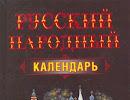In which countries is the German language predominant? German speaking countries. Why is German the official language in Austria?
Are you learning German and don't know where to speak it except in Germany? We will tell you about the most German-speaking countries.
As you know, German belongs to the West Germanic subgroup of the Germanic languages and is the official state language of the Federal Republic of Germany, with a population of 77 million people, as well as Austria, which has about 7.5 million more people who speak the language you are learning. The official language of the Principality of Liechtenstein ( Furstentum Liechtenstein), which covers an area of just 160 square kilometers in the mountains of the Alps, is also considered German.
Moreover, German is one of the official languages of Switzerland, according to statistical estimates, there are about 4.6 million German-speaking citizens in Switzerland, which is 72.4% of the country's population. Luxembourg and Belgium will also welcome you with the sounds of German, as they speak their own dialects of the Germanic language in these areas. Significant groups of the German-speaking population also live in France, Italy, the USA, Canada, Brazil, Argentina and other countries, but the latter do not belong to the group of German-speaking countries.
Of course, in most areas of Germany and the countries listed above, residents speak dialect variants of the common German language, and in order to choose which accent you want to hear first of all, we will tell you a little about the countries and their features.
Literary German (Hochdeutsch) is generally accepted in the field of education, office work, in official institutions, it can be heard while watching German TV channels or listening to German radio stations. But in some German lands you will hear the German language, which differs in some features of phonetics, morphology and vocabulary.

So, the largest country in terms of the number of German-speaking inhabitants is Germany, or Federal Republic of Germany- European democratic state, consisting of 16 lands. Of course, in a country in which 92% of the inhabitants are Germans, the language is the most pleasant for you and me, but if you go to Germany, get ready to see also a unique country that does not have large natural reserves of any natural resources, but occupies a significant place in the global economy. And this is due to the working capacity of the population, a reasonable and practical approach to each problem, as well as to the native language.
Along with the literary German, the population uses Low, Middle and High German dialects, which are often very different from the literary language. There are also mixed dialects. It makes sense to visit not only the largest German cities (Berlin, Hamburg, Munich or Cologne), but also relatively small ones, especially since you will find cultural attractions anywhere in Germany, since modern Germany is characterized by diversity and wide dissemination of culture. In the country, for example, there are more than 4570 museums, and their number is constantly growing. And, of course, you can taste special German cuisine, visit beautiful old castles, and all this will be seasoned with pure German. 
What is interesting Austria? The Republic of Austria is a European state, with its capital in Vienna, the longest border of which runs in the north with Germany. The mountainous terrain and mild climate also affected the language, even the Austrians themselves admit that “their” German is much more melodic and softer. This is facilitated by the fact that the suffix -l is very common in the Austrian pronunciation.
Despite the fact that the largest ethnic group - German-speaking Austrians - make up 88.6% of the country's population, the spoken and official language of the Austrians differs significantly from the official German language of Germany: Austrian dialects are close to the Bavarian dialect of Germany and the German language of Switzerland.
The Austrian German language is distinguished in part by vocabulary, slightly by grammatical features and pronunciation style. The Austrian version of German is also different because it was not normalized by the rules of Duden *, as a result, it retained local color.
 For example: in Austria you can hear “Guten Morgen, gnädige Frau”, “Guten Abend, Herr Ingenieur”, “Grüß Gott, Herr Doktor”, in Germany the greeting is limited to the actual greeting and a brief address with the mention of the surname - “Guten Morgen”, “Guten Abend , Herr Müller“.
For example: in Austria you can hear “Guten Morgen, gnädige Frau”, “Guten Abend, Herr Ingenieur”, “Grüß Gott, Herr Doktor”, in Germany the greeting is limited to the actual greeting and a brief address with the mention of the surname - “Guten Morgen”, “Guten Abend , Herr Müller“.
Since many austricisms go back to the clerical language of the Habsburg Monarchy, the language uses many of its own words to denote political or legal concepts. The Austrians also gave their names to the months, for example,
Jänner is used universally in place of Januar and Feber in place of Februar or Hornung.
The Austrian version also has many of its own culinary names and products, for example, in German the word for tomatoes is "Tomaten", and in Austrian it is "Paradeiser".
As it has become a tradition lately to visit Austria in winter to go skiing, if you want to get to know the country from the point of view of its culture, visit numerous theaters, operas or the well-known Pikard family circus, you would be better off going to cities with beautiful architecture in the summer. At this time, it is easier to start a casual conversation with an Austrian over a glass of beer and a national dish of beef or pork.
Of course, a dwarf principality - a state - is very attractive for life or a tourist trip. Liechtenstein. Bordered by Austria to the east and Switzerland to the west, Liechtenstein is a prosperous industrial nation with a strong financial services sector and high level life. The country has a small number of inhabitants, only 35,360 people (according to 2008), whose official language is German, but in everyday life you are more likely to hear the Alemannic dialect of German **, also common in southern Germany. And while in Germany the Alemannic dialect is being replaced by the Berlin version of German, in Switzerland and Liechtenstein, on the contrary, the position of the Alemannic dialect is strengthening: in forums and SMS messages, young people write mainly in dialect, on television and radio, more and more programs are broadcast on Alemannic.
Whatever country you choose for your trip, remember that literary German is understood in any of them, and by learning the features of local pronunciation, you will give your speech a special charm and expressiveness.
website
June 2012
*Conrad Alexander Friedrich Duden (January 3, 1829 - August 1, 1911) - German philologist, compiler of the famous spelling dictionary German language named after him.
** The Alemannic dialect (West South German dialect) of the German language belongs to the South German dialects of the High German cluster.
German (German Deutsch, deutsche Sprache) is the language of Germans, Austrians, Liechtensteiners and most of the Swiss, the official language of Germany, Austria, Liechtenstein, one of the official languages of Switzerland, Luxembourg and Belgium. Belongs to the Indo-European family of languages (Germanic branch). Writing based on the Latin alphabet.
as official main language
Germany (about 80 million speakers)
Austria (7.5 million speakers)
Liechtenstein
as one of the official languages
Belgium (along with French and Dutch)
Italy (at the level of the South Tyrol region, along with Italian; about 300 thousand speakers)
Luxembourg (about 300 thousand speakers; used along with Luxembourgish and French)
Switzerland (75% German, 4-6 million speakers, used along with French, Italian and Romansh)
as a language of national minorities
Argentina - 300,000
Australia - 150,000
Brazil - 1,900,000
Hungary - 145,000
Denmark - 20,000
Kazakhstan - 358,000
Canada - 128,350
Latvia - 3780
Lithuania - 2060
Moldova - 7300
Namibia - 30,000
Netherlands - 47,775
Paraguay - 200,000
Poland - 173,000
Romania - 70,000
Russia: European part - 75,000, Siberia - 767,300
Slovakia - 12,000
Ukraine - 38,000
France - 1,200,000
Croatia - 11,000
Czech Republic - 50,000
Chile - 150,000
Estonia - 3460
USA - 1,483,100
There are German speaking areas in France (Alsace and Lorraine)
The German language belongs to the West Germanic subgroup of the Germanic languages and is the official state language of such states as the Federal Republic of Germany (about 76-77 million speakers), Austria (7.5 million people), Liechtenstein, as well as one of the official languages of Switzerland (4, 6 million speakers, or 72.4% of the population), Luxembourg and Belgium. Significant groups of the German-speaking population also live in France, Italy, the USA, Canada, Brazil, Argentina, Russia, Kazakhstan, Kyrgyzstan, Poland and Romania, but the latter do not belong to the group of German-speaking countries.
German dialects
Literary German (Hochdeutsch) is the common language used in education, office work, official institutions, etc. There are many regional dialects of the German language, such as German Plato (Low German), which is spoken in the north of the country (it is somewhat similar to Dutch and closer to English than literary German), Swabian in the southwest, Bavarian in the south, and Saxon in the southeast. Austria and Switzerland use their own national variants of the literary German language (respectively, Austrian and Swiss, which should not be confused with the Austro-Bavarian or Swiss dialects), which differ in some features of phonetics, morphology and vocabulary.
The three largest German-speaking countries can be abbreviated DACH (dah) from D (Germany, Deutschland), A (Austria (lat. Austria) and CH (Switzerland, lat. Confoederatio Helvetica). The abbreviation is used mainly for the names of events, conferences, for example, " DACH Meteorologentagung" or for common projects of these three countries. There are also electronic maps of the same name for navigators.
German is one of the most commonly used languages in the world, ranking tenth in popularity among all languages. It is also one of the most widely spoken languages: German is spoken by more than 100 million people worldwide. At the same time, it should be taken into account that the German language itself is heterogeneous, which creates additional difficulties for identifying the exact number of speakers of it. Some German dialects and dialects that belong to the West Germanic language continuum can no longer be attributed to the proper German language, so the number of people who speak them is not taken into account.
The official German language is:
in Germany (about 80 million people; see German language in Germany);
Austria (7.57 million; see German in Austria);
Liechtenstein (35.36 thousand people).
German is one of the official languages:
Switzerland (used along with French, Italian and Romansh; about 67% of the Swiss speak German (5 million people); see German in Switzerland);
Luxembourg (along with Luxembourgish and French; about 474 thousand people);
Italy (at the level of the South Tyrol region, along with Italian; about 330 thousand people);
Belgium (along with French and Dutch; 78 thousand people).
Minority language
German is one of the official languages of the European Union and also one of the working languages along with English and French. In Europe, German is the second most widely spoken language after English.
German is also used in many sports regional and international federations (for example, FIBA, FIFA, UEFA, etc.), and is one of the ESA and EPO languages.
But in a conversation with friends and acquaintances, a lot is said in dialect. It is very difficult to understand each other when people speak their own dialects. But standard German, or as they say, "high German", is understood by everyone.
If no one has any doubts about learning English, then other languages are rarely chosen as the target. For example, when choosing German, a student immediately has a question - where does he need it in everyday life?
Meanwhile, German is native to 100 million people. It is used not only in Germany, but also in other European countries at the official level. But in Germany itself, not all residents speak German.
Historically, the country, which once consisted of small principalities, has formed different dialects. Where else this language is common, as well as how German dialects differ, we will tell in this article!
Where and why is German spoken?
At the state level, German is widespread not only in the territory of Germany. It is also official in Austria, Switzerland, Liechtenstein, Belgium and Luxembourg. Moreover, in other countries a literary version is used, and in Germany itself there are a lot of dialects.
Most German-speaking countries are located on the border with Germany. Historically, their territories were dominated by this representative of the western subgroup of the Germanic languages. Of course, over the centuries of history, each locality has modified the language into its own dialect. But the literary version is still officially recognized.
Dialects of German in Germany

On the territory of Germany, under the influence of historical, cultural and geographical factors, many dialects were formed. Their varieties belong to the dialect continuum along with the Dutch language. However, officially in all German-speaking countries is used literary language, or Hochdeutsch ("hohdeutsch").
In general, all German dialects can be classified into three groups: Low German and High German, plus South German dialects. Each group includes several more dialects that have been formed due to historical and geographical factors. There are also national forms of the language, such as Austrian German or Swiss.
Literary German. Is it generally accepted everywhere?

If officially in all these countries a literary variant called HochDeutsch is recognized as the state, then in reality this is not so. Directly in Germany, of course, all life passes with hochdeutsch - it is used by all the media, it is studied at school.
But Austria, Luxembourg and Switzerland have their own dialect of German, which is not very similar to the traditional one. Moreover, some countries, such as Switzerland, where the Germans live more than 60% of the population, attended to subtitles on HochDeutsch. But they go only when showing news and information programs; when broadcasting entertainment programs, the national version of the language is used.
Why is German recognized as the state language in Austria?

The history of this country has developed in such a way that its people have always been closely connected with the Germans. Due to its geographical proximity to Germany, it has always been part of the German-speaking states. Before the name Austria was first heard, this territory belonged to Bavaria. Not surprisingly, the local dialect is based on Bavarian and differs from the literary variant.
Can a German and an Austrian speak freely with each other?
Although German seems to be officially recognized in Austria, there is a huge gap between Austrians and Germans in speech. Each of them considers their own version of the language to be correct, so the inhabitants of Austria even communicate in their own dialect. In order to be fluent in Austrian speech, it is not enough to know German. Tourists also have to get acquainted with the dialect of this country in order to understand the locals.
What languages are actually spoken in Belgium?

In Belgium, this language is also recognized at the state level along with Dutch and French. But here it rather refers to communication between linguistic minorities, since the German diaspora is small, just over 70 thousand inhabitants (out of 11 million). The German-speaking population lives in nine municipalities. After the war, an active policy of de-Germanization was carried out here, so the locals consider themselves more Belgians than Germans.
Where else can you learn German?
German is popular wherever the German diasporas live. They are scattered all over the world and are found in almost every developed country. For example, in France there are slightly more than 1.2 million German-speaking residents, in the USA - 1.1 million, in Brazil 900 thousand people consider it native, and in Russia - more than 800 thousand people who speak German from birth. Not surprisingly, German is often studied in European countries as a second foreign language. Even in Russia, in some schools, you can optionally choose it for study.
German is quite common in the world, and if you want to learn it, then there is no doubt. It will be useful not only in Germany, but also in other countries!
Like the article? Support our project and share with your friends!






